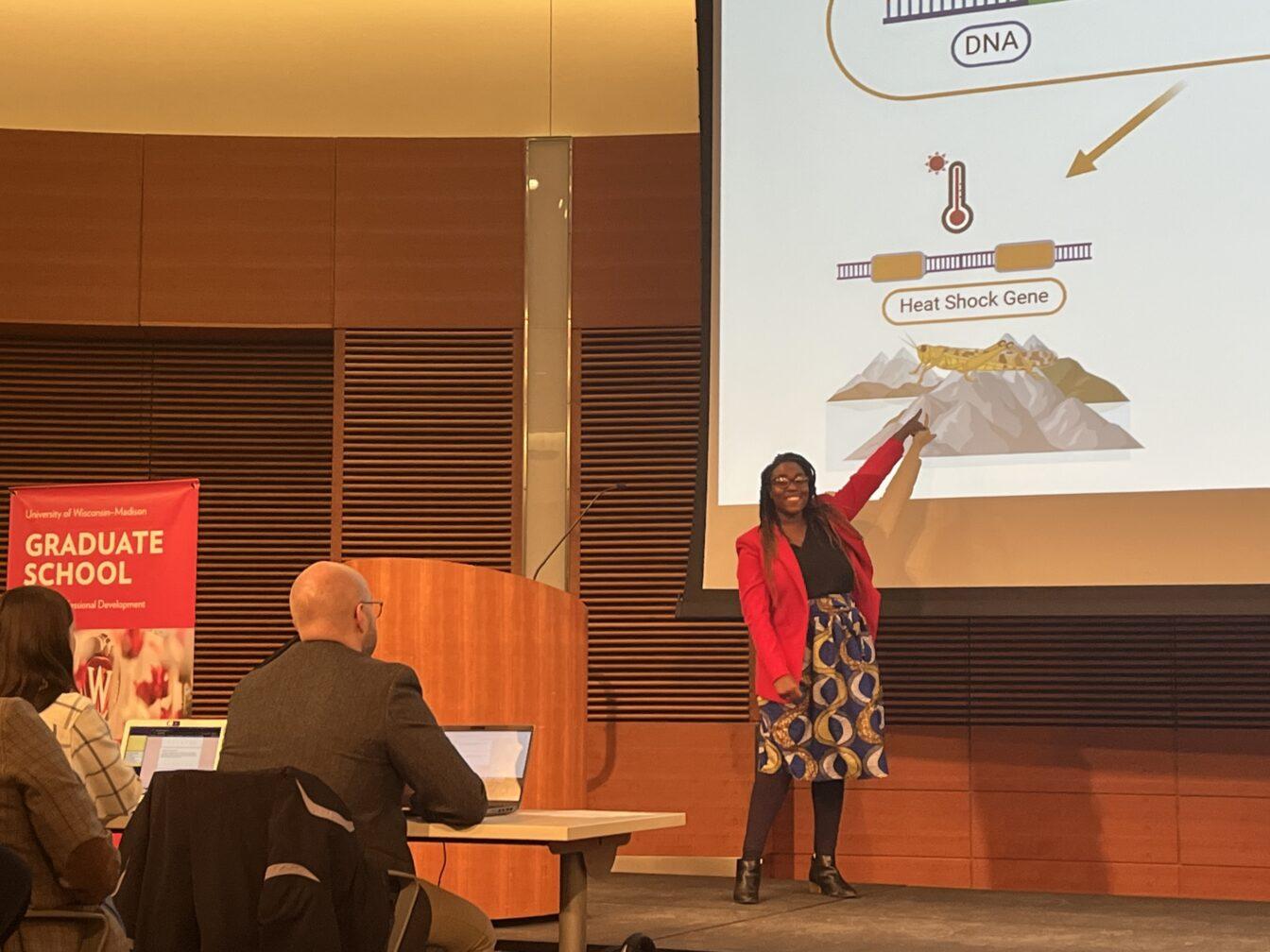Twelve semifinalists from varying master’s and doctoral programs competed in the eighth annual Three Minute Thesis Finals held at the University of Wisconsin Feb. 17. The objective of the competition is for students to explain their thesis research to a general audience — in under three minutes.
By the end of the finals, the judges will name the top three presenters and the audience will vote on one people’s choice nominee, Dean of the Graduate School William Karpus and pharmaceutical sciences Ph.D. student Hannah Miles said.
Started in Queensland, Australia, Karpus said the idea for the competition stemmed during a drought in which people used a three-minute egg timer to limit their showers and conserve water. Combining the short time period with research, University of Queensland Dean of the Graduate School Emeritus Professor Alan Lawson created the 3MT competition.
The first 3MT was held in 2008 with only 160 participants. Now, having been adopted by universities worldwide, 3MT spans continents with over 85 countries and 900 universities participating.
Equipped with one PowerPoint slide, their voice and three minutes, each presenter must convey their thesis research the best they can, according to the competition rules. A panel of judges then assesses the participants based on comprehension and content, engagement and communication.
Thesis topics ranged from atmospheric and oceanic sciences to plant pathology. Each semifinalist decorated their slides differently with visuals, charts or diagrams.
Graduate student Adam D’Angelo presented on plant breeding and plant genetics in his presentation titled “Off the Beeten Path.” He said knowing your project well makes it much easier to put it together.
It also comes down to someone’s comfort level with public speaking and approaching the presentation with a scripted or conversational tone, which makes everyone’s experience different, D’Angelo said.
But according to D’Angelo, the three minutes isn’t as daunting as it may seem.
“It feels way longer,” D’Angelo said. “Time slows down.”
At the end of the event, the winner of the people’s choice award was Sarah Waldfogel speaking on “Recovering Voice: Is Out-of-District Giving a Substitute for Local Political Participation?”
Ebony Taylor came in third with her three-minute thesis “It’s Getting Hot in Here; Turn on the Genes!” Rachel Hutchins came in second with her presentation “Let’s Talk About the (Baby) Elephants and Donkeys in the Room.”
Awarded first place, and representing UW at the regional competition in Chicago, was Kaitlin Moore, presenting on “Navigating by Starlight: Cosmological Constellations in the Ecopoetry of Pacific Oceania.”
“This feeds into the idea — the Wisconsin idea,” Karpus said. “All of the work I saw being communicated today has this applicability to the border and beyond our borders.”


